Marc Otten
Investigating the Performance of Language Models for Completing Code in Functional Programming Languages: a Haskell Case Study
Mar 22, 2024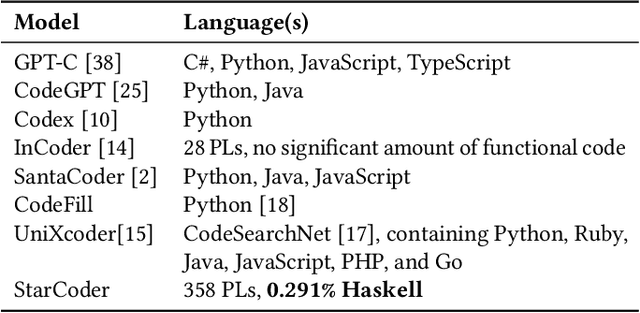
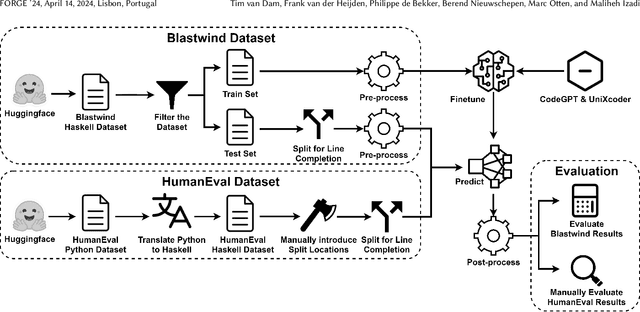
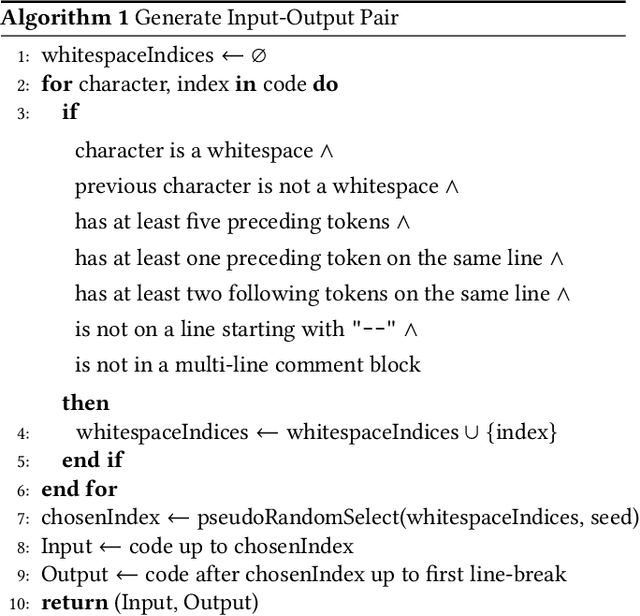
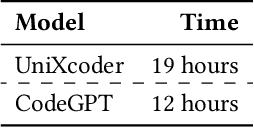
Abstract:Language model-based code completion models have quickly grown in use, helping thousands of developers write code in many different programming languages. However, research on code completion models typically focuses on imperative languages such as Python and JavaScript, which results in a lack of representation for functional programming languages. Consequently, these models often perform poorly on functional languages such as Haskell. To investigate whether this can be alleviated, we evaluate the performance of two language models for code, CodeGPT and UniXcoder, on the functional programming language Haskell. We fine-tune and evaluate the models on Haskell functions sourced from a publicly accessible Haskell dataset on HuggingFace. Additionally, we manually evaluate the models using our novel translated HumanEval dataset. Our automatic evaluation shows that knowledge of imperative programming languages in the pre-training of LLMs may not transfer well to functional languages, but that code completion on functional languages is feasible. Consequently, this shows the need for more high-quality Haskell datasets. A manual evaluation on HumanEval-Haskell indicates CodeGPT frequently generates empty predictions and extra comments, while UniXcoder more often produces incomplete or incorrect predictions. Finally, we release HumanEval-Haskell, along with the fine-tuned models and all code required to reproduce our experiments on GitHub (https://github.com/AISE-TUDelft/HaskellCCEval).
Language Models for Code Completion: A Practical Evaluation
Feb 25, 2024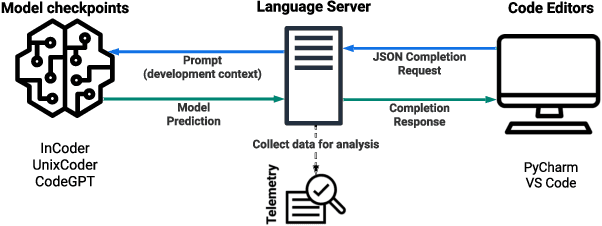
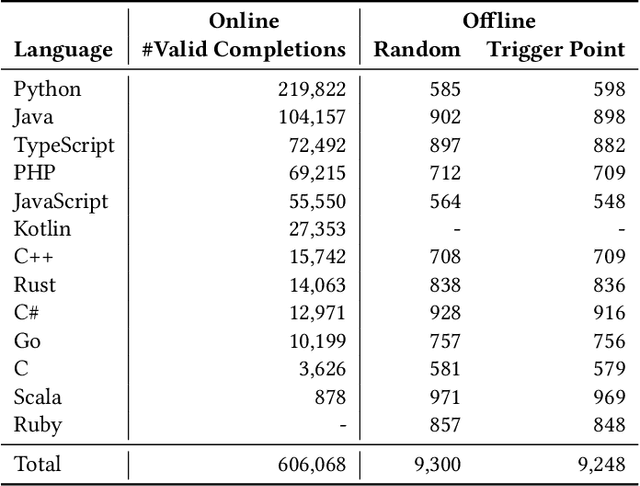

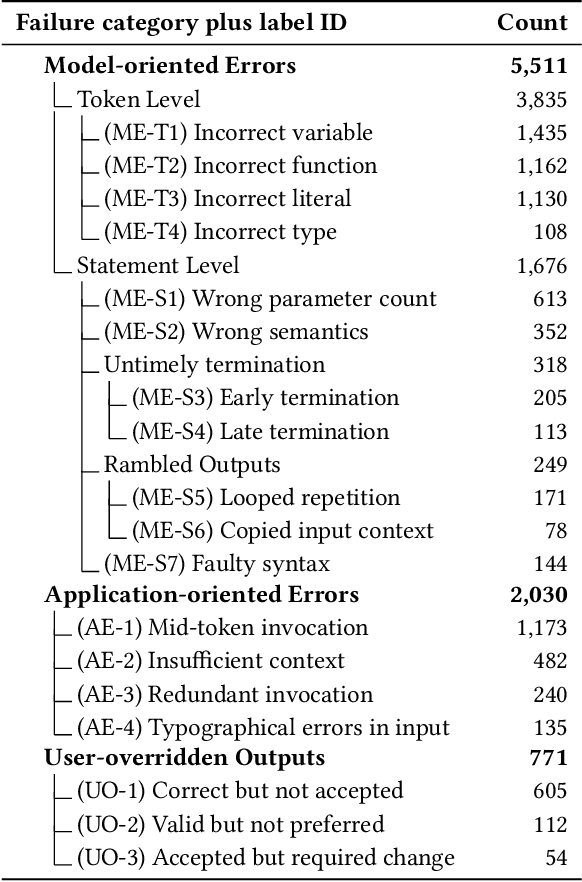
Abstract:Transformer-based language models for automatic code completion have shown great promise so far, yet the evaluation of these models rarely uses real data. This study provides both quantitative and qualitative assessments of three public code language models when completing real-world code. We first developed an open-source IDE extension, Code4Me, for the online evaluation of the models. We collected real auto-completion usage data for over a year from more than 1200 users, resulting in over 600K valid completions. These models were then evaluated using six standard metrics across twelve programming languages. Next, we conducted a qualitative study of 1690 real-world completion requests to identify the reasons behind the poor model performance. A comparative analysis of the models' performance in online and offline settings was also performed, using benchmark synthetic datasets and two masking strategies. Our findings suggest that while developers utilize code completion across various languages, the best results are achieved for mainstream languages such as Python and Java. InCoder outperformed the other models across all programming languages, highlighting the significance of training data and objectives. Our study also revealed that offline evaluations do not accurately reflect real-world scenarios. Upon qualitative analysis of the model's predictions, we found that 66.3% of failures were due to the models' limitations, 24.4% occurred due to inappropriate model usage in a development context, and 9.3% were valid requests that developers overwrote. Given these findings, we propose several strategies to overcome the current limitations. These include refining training objectives, improving resilience to typographical errors, adopting hybrid approaches, and enhancing implementations and usability.
 Add to Chrome
Add to Chrome Add to Firefox
Add to Firefox Add to Edge
Add to Edge